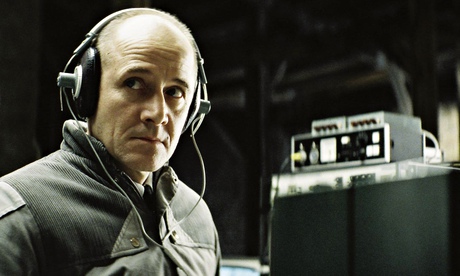
Fifteen months have passed since Edward Snowden began to explain to us how our networked world works. During that time there has been much outrage, shock, horror, etc expressed by the media and the tech industry. So far, so predictable. What is much more puzzling is how relatively relaxed the general public appears to be about all this. In Britain, for example, opinion polling suggests that nearly two thirds of the population think that the kind of surveillance revealed by Snowden is basically OK.
To some extent, the level of public complacency/concern is culturally determined. Citizens of Germany, for example, appear to be significantly more concerned about the Snowden revelations – and were so even before it was discovered that the NSA was bugging Angela Merkel's mobile phone. Germany was the European country where Google's Streetview project ran into most opposition, for example. But German wariness about comprehensive surveillance is easy to understand: after all, half of the country lived for decades under the Stasi's comprehensive analogue surveillance. Germans know all about being watched.
The relative complacency of the British, on the other hand, is also culturally determined. GCHQ emerged from Bletchley Park, and in the popular mind may still surf the slipstream of Enigma glory. The halo effect of the James Bond movies may also have something to do with it, which is odd given that until comparatively recently the senior ranks of 007's employer harboured a nest of Soviet spies. When the Regulation of Investigatory Powers Act (Ripa) – the statute which ostensibly "legalises" everything that GCHQ & co do in cyberspace – was going through parliament in 1999, those of us who campaigned against it were astonished to find that no more than a handful of MPs were interested. After all, their constituents weren't writing about it and they were happy to accept the home secretary's assurances that he was simply updating phone-tapping regulations for the digital age. This legislative indolence is a shocking case study of what complacent ignorance can do to a democracy, and we are now living with the consequences of it.
It's tempting for tech-savvy folks to resort to elitist explanations for the general public's lack of concern. The general tenor of this tech critique goes something like this: the poor schmucks don't know the first thing about this stuff; otherwise they wouldn't be signing up for "free" services that read their email and exploit their personal data; nor would they be storing their files – unencrypted – in the cloud, or enabling location services on their smartphones. And so on. And if they weren't schmucks, why would they fall for the official mantra that "if you have nothing to hide, then you have nothing to fear"?
Given that we live in a democracy, contempt for the electorate seems an unwise approach to persuasion. Those of us who worry about this stuff need to think differently. In particular, we need to get to the root of the problem – which is that people find it hard to imagine where current technological, political and economic trends could be taking us. To put it bluntly, we are heading for a society that is comprehensively surveilled. And I mean comprehensively: if you think it's bad now then just wait until the "internet of things" bandwagon really rolls.
The problem we have, therefore, is one of imaginative failure. If people could really conceive what it would be like to live in such a society, then perhaps they would be more concerned about what is happening now. But most of us don't have imaginations that are up to the task. Fortunately, though, there are people among us who do. We call them novelists.
In a previous era, the most prophetic evocations of where we were headed were produced by two Old Etonian novelists – George Orwell and Aldous Huxley. Orwell thought we would be destroyed by the things we fear, particularly comprehensive surveillance. Huxley conjectured that we would be destroyed by the things that delight us. As it happens, we've wound up with both. NSA/GCHQ are doing the Orwellian stuff, while Google, Facebook, Apple, Yahoo, Microsoft, Skype et al are taking care of the Huxleyan side of things.
But now we need an updated imaginative visualisation of what lies further ahead. Step forward Dave Eggers, whose novel The Circle is a vivid account of what happens when a digital naif enters the force field of an organisation that is a mash-up of Google and Facebook. As a novel it has some flaws but as a picture of a possible future it is utterly, utterly brilliant. Put it on your Xmas list now.

